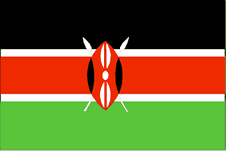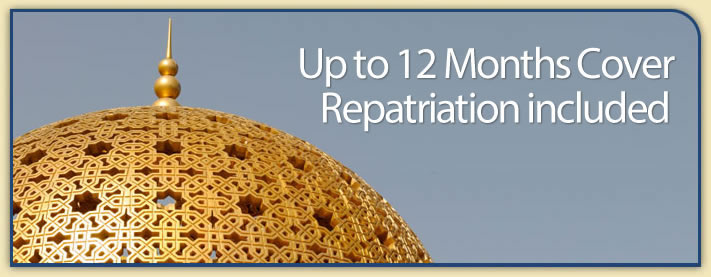Country Guide • Kenya

Kenya is located in East Africa. It is bound by Tanzania to the south, Uganda to the west, Sudan to the northwest, Ethiopia to the north, Somalia to the northeast and the Indian Ocean to the east.
| Official Name | Republic of Kenya |
|---|---|
| Area | 582,646km² (224,961 Sq Mi) |
| Population | 31,638,000 |
| Continent | Africa |
| Population per mile² | 141 |
| Capital City | Nairobi |
| Religions | 40% Protestant, 33% are Roman Catholic, 19% follow local native tribal beliefs and 6% Muslims |
| Language | English is the official language and Swahili is their national language |
| Government | Republic (multiparty state) |
| Currency | Kenya Shilling |
| GDP | $32 billion |
| GDP per Head | $1,020 |
| Natural Resources | Gold, limestone, soda ash, salt, rubies |
| Land Use | Arable Land 7% |
| Agriculture | Coffee, tea, corn, wheat, sugarcane, fruit, vegetables; dairy products, beef, pork, poultry |
| Industry | Small-scale consumer goods E.G (plastic, furniture, beer, batteries, textiles, flour), agricultural processing, oil refining, chemicals, cement and tourism |
| Tourism | Kenya has fantastic scenery ranging from the indigo sea and white sandy beaches to the rolling bushveld of Tsavo and Amboseli. The golden grasslands of the Masai Mara contrast with the seismic scar of the Great Rift Valley and the desolate volcanic wastelands around northern Lake Turkana. Kenya also is the place to go for the very best in game-viewing with elephants, lions, giraffe, rhino and a host of other animals plus hundreds of species birds |
| Natural Hazards | Recurring drought; flooding during rainy seasons |
| Health Risks | Malaria (including in Nairobi and other moderately high-altitude areas), cholera, hepatitis, meningitis, mugging, typhoid, bilharzia, HIV, Rift Valley fever and yellow fever |
| Climate | Kenya's climate varies from a tropical climate on the coast to a temperate climate inland and to a dry climate in the north. Over 70% of the country is arid receiving less than 20 inches of rainfall per year, but rainfall in the highlands is still fairly plentiful. Altitude is a major factor in variations in temperature between the different regions of the country. Average temperature ranges in Nairobi are from 11 to 21°C in July to 13 to 26°C in February |
| Time | GMT/UTC+3 hours |
| National Days | Kenyatta Day - 20 October and Independence Day - 12 December |
| Visas | All foreign nations with the exception of a few commonwealth countries need a visa to enter Kenya. Visas may be obtained on arrival by air with a cash payment of 50 American Dollars or in advance from: Kenyan representation in the UK at a cost of 35 pounds Sterling. Passports should be valid for at least a further six months. There is also an airport departure tax of 20 American Dollars, which is normally included in the price of airline tickets |
| British Embassy | Embassy Details |
Information Only
The content above is for information purposes only and we have tried to ensure that the information is as accurate as possible. We cannot accept any responsibility for any inconvenience, loss or injury as a result of the information above. You should always check and verify any critical information like visas, health and safety and customs with the relevant authorities before you travel since information can change at any time.



